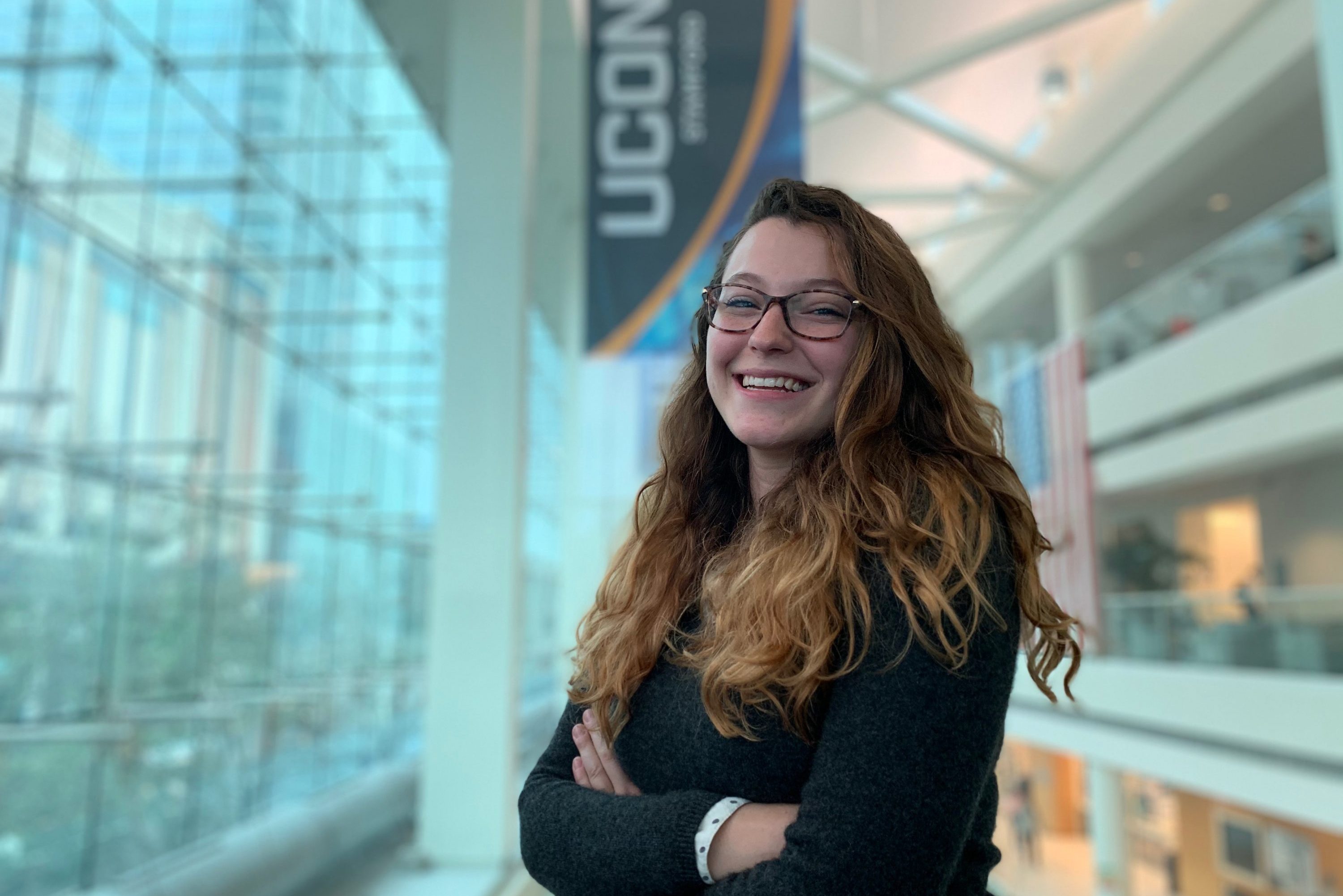Isabella Ferrante’s interest in history started early. As a child, one of her favorite shows was PBS’s Liberty’s Kids, an animated series following the adventures of a group of young Americans during and after the Revolutionary War.
This interest was solidified in middle school at Ridgefield Academy thanks to Mrs. Dolan, a teacher who reanimated history for her students.
“We did battle reenactments and wrote letters to historical figures,” says Ferrante, of Norwalk, Connecticut. “She made it all so incredibly interesting.”
Now an honors student at UConn Stamford, Ferrante, a history major with minors in psychology and English, has launched a promising research career. She spent the summer in the United Kingdom studying shell shock before, during, and after World War I.
“I’ve always had this morbid interest in war and questioning why people continue to do it when it causes so much pain,” Ferrante says.
Through a Summer Undergraduate Research Fund (SURF) grant from UConn’s Office of Undergraduate Research, Ferrante was able to travel to the home base of her research and use the British National Archives.
“It was incredible from an academic standpoint and also encouraged a lot of personal growth and pushed me out of my comfort zone in a good way,” Ferrante says. “I was able to create a place of familiarity in an unfamiliar place.”
World War I represented a definitive turning point in the sociological history of war, especially how people regarded the mental health of soldiers and veterans, Ferrante says. The term “shell shock” was coined in 1915 by an English Medical Officer, Charles Myers, to describe the psychological trauma of veterans, though the term had been used in the trenches among soldiers since the outbreak of war.
“It was the first war where we saw a huge social backlash because of how actively traumatic it was for people,” Ferrante says.
Ferrante is also putting her psychology and English minors to work for this project by looking at biographies and memoirs of veterans, along with contemporary publications in the psychology field.
“A whole chunk of my paper will be looking at personal changes within soldiers,” Ferrante says. “I’m going to be reading war biographies and memoirs which tie into understanding the human perspective.”
Ferrante says one of the most important takeaways from her experience is the topic she is researching still has repercussions for modern Britain.
“Even though the war was 100 years ago, you can still feel the effects in British culture today,” Ferrante says. “It’s stuff you can’t read in primary or secondary sources. It’s something you only get to experience by being immersed in that culture.”
After graduation, Ferrante plans to take a break before returning to school to earn her master’s degree. She hopes to go on to be a high school history teacher and work in a museum to help spread her love of history to others as the teachers and archivists she has worked with did for her.
Ferrante recommends that students who want to get into research get started early and know what they want to find before diving into the available sources.
“Do as much as you can to get a grasp of what you want to see beforehand,” Ferrante says. “And definitely make friends with the archivists, it’s so incredibly useful.”
Students interested in seeing more of the research UConn’s talented undergraduates like Ferrante are doing can check out the Fall Frontiers in Undergraduate Research on Oct. 30 from 5 to 7 p.m. in the Wilbur Cross North Reading Room, as well as the other Month of Discovery events happening this October.



